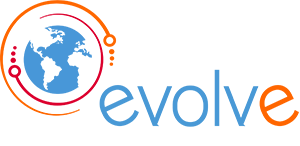Summary
– Main objectives of the Virtual Exchange
-
- Acquiring knowledge about Tunisian/German culture, understanding pluralist approaches connected to arab*ic and west*ern cultures
- Understanding how cultural values affect one’s perception and behaviour
- enhancing self confidence in dealing with other people from a different culture
- developing cross cultural virtual teamwork
- developing ICT literacy
– Targeted learning outcomes
Obtaining knowledge about culture, specifically ones own culture and culture of participating students, reflecting attitudes, images, stereotypes, obtaining communication skills to broaden intercultural competence and apply for 21st century challenges in the context of SDG´s.
• Students are aware of culturally learned structures of perception and behaviour and how they affect communication in teams.
• Students know the differences of description, interpretation and evaluation and how these influence patterns of communication. Students can effectively use skills of active listening, addressing differences, asking questions. Students know how to communicate in the virtual context and acquire digital literacies.
– Global task description
In teams students will think about innovative ideas to enhance multicultural relationships between students within their campuses.
Partners
| Partner / department | Course | Language of instruction | Number of students |
| University of Goettingen (D) Humanities |
Intercultural Competence Focus: Arab*ic-West*ern Cultural Relationships | English | 15 |
| Institut Supérieur de Etudes Technologiques de Béja (TN) Information Technology department |
Intercultural communication workshop | English | 10 |
Start and end date
10/02/2020 – 20/02/2020
Duration
10 days
Discipline
- Humanities (except languages) (Goettingen)
- Management and administration (Béja)
Integration and assessment
The course is taking place as a VE course, they are the same. Assessment is done via presentation of results at the end of the workshop, portfolio, peer evaluation.
Technology tools used
– Learning environment
Stud.IP (the LMS of Goettingen University)
– Collaboration tools
Padlet, WhatsApp, Adobe Connect
– Reflection tool
Portfolio
